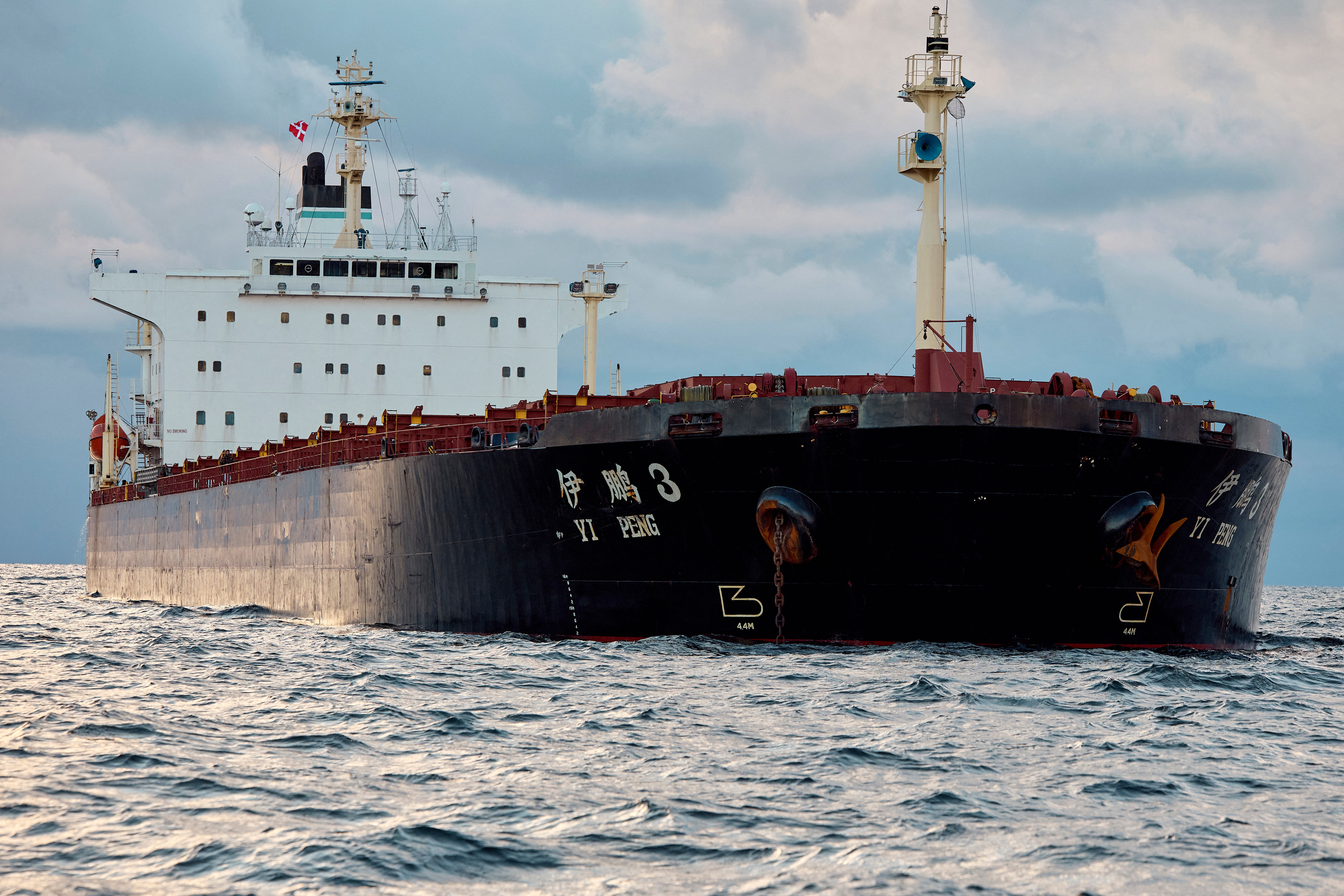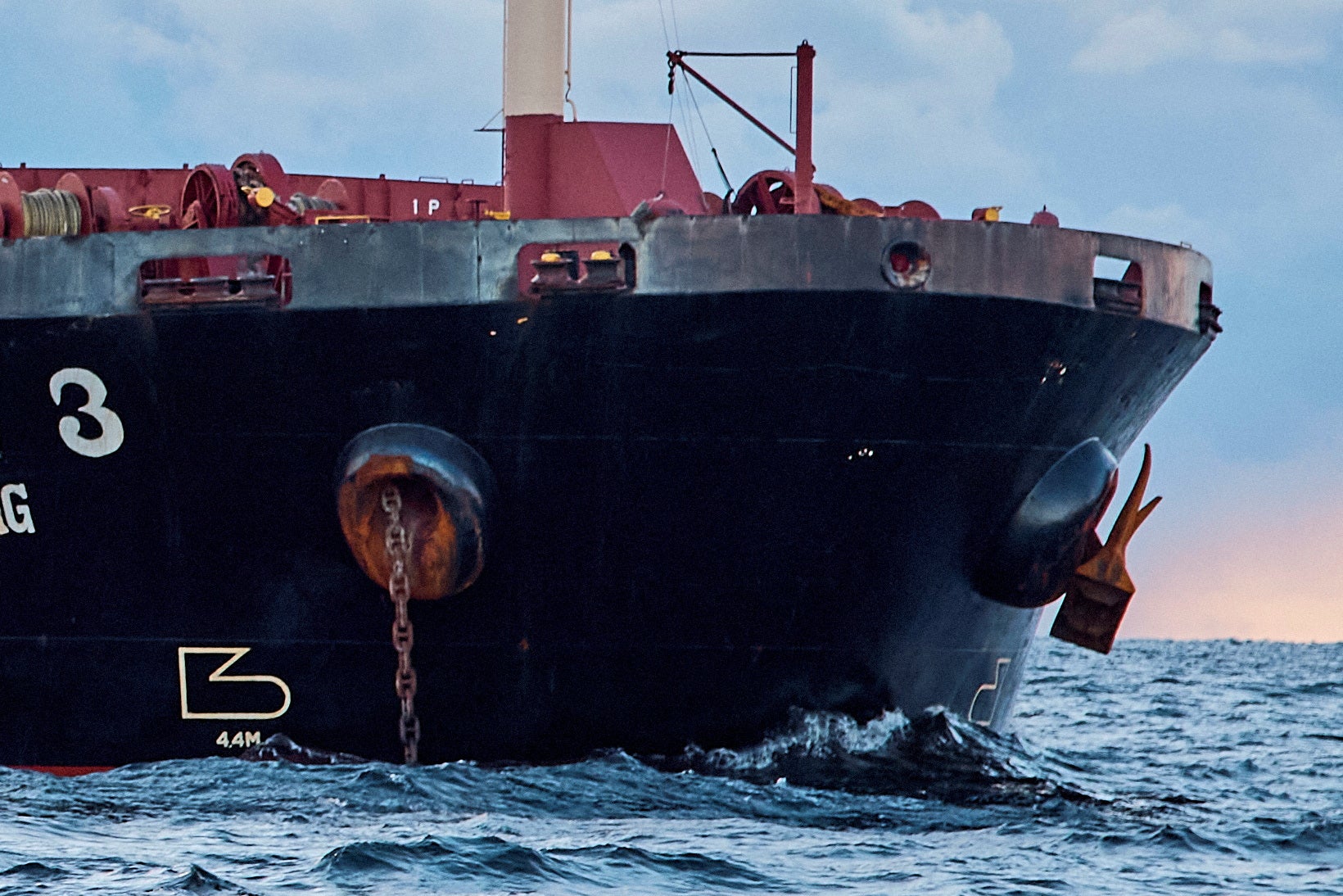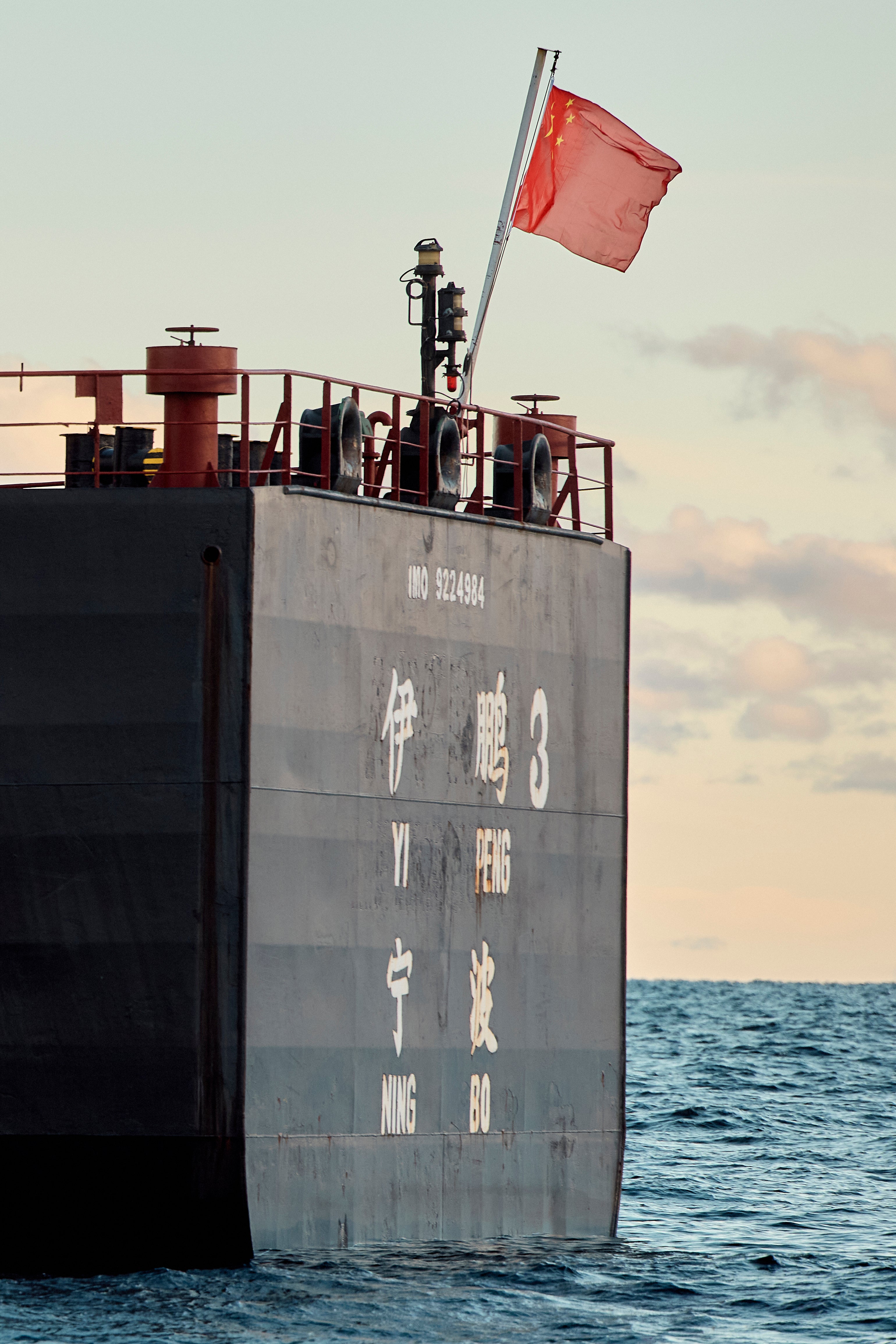Sweden formally asks China to cooperate with investigations into undersea cables damage
Chinese ship Yi Peng Three allegedly severed Balti Sea cables by dragged anchor on seabed

Your support helps us to tell the story
From reproductive rights to climate change to Big Tech, The Independent is on the ground when the story is developing. Whether it's investigating the financials of Elon Musk's pro-Trump PAC or producing our latest documentary, 'The A Word', which shines a light on the American women fighting for reproductive rights, we know how important it is to parse out the facts from the messaging.
At such a critical moment in US history, we need reporters on the ground. Your donation allows us to keep sending journalists to speak to both sides of the story.
The Independent is trusted by Americans across the entire political spectrum. And unlike many other quality news outlets, we choose not to lock Americans out of our reporting and analysis with paywalls. We believe quality journalism should be available to everyone, paid for by those who can afford it.
Your support makes all the difference.Sweden has sent a formal request for China to cooperate with its investigations into the severing of two undersea data cables on the Baltic Sea bed.
The cables were severed on 17 and 18 November when a Chinese ship, Yi Peng Three, was speculated to be sailing in the area.
China, responding to Sweden’s request, said it stands ready to “uncover the truth” while denying any involvement in suspected sabotage.
A Chinese foreign ministry spokesperson said it will work with the concerned nations to find out how the two undersea cables were damaged.
Swedish president Ulf Kristersson said on Thursday that Stockholm is seeking “clarity” from Beijing on how the two fibre optic cables were damaged.
“Today I can tell you that we have additionally sent a formal request to work together with Swedish authorities to get clarity about what has happened,” he said during a press conference after a security meeting of government leaders of the Baltic Sea region.
“We expect China will choose to work together as we have requested.”

The two cables in question are the Arelion cable, linking Sweden to Lithuania, and the C-Lion 1 cable that runs between Finland and Germany. They are part of network infrastructure that facilitates international communication by providing high-speed data connections.
According to data from ship tracking websites, theYi Peng Three disembarked from Ust-Luga post, west of St Petersburg in Russia, on 15 November.
The vessel was tracked sailing over the cables around the time the cables were severed on 17 and 18 November.

The next day the ship was anchored in the Kattegat Strait, a passage between Sweden and Denmark, and was being monitored by multiple vessels, including from the Danish navy.
According to a Wall Street Journal report, it is suspected the crew on the Chinese ship deliberately severed the cables by dragging its anchor through the seabed for more than 100 miles.
Polish prime minister Donald Tusk expressed “full solidarity and full support” for Sweden as it acts in the interest of all countries in the Baltic region.
Finnish, Swedish and German authorities have launched investigations into the rupture of the two cables.
Germany’s defence minister claimed the damage appeared to have been an act of sabotage, although there is no evidence thus far.
“The cable between Sweden and Lithuania, which is owned by a Swedish company, was damaged on 17 November,” a Swedish prosecutor said.
“The cable between Finland and Germany, located south of the Sweden-Lithuania cable, was damaged a number of hours later. Both damage sites are located within the Swedish economic zone.”
Tensions have escalated in the Baltic Sea since Russia’s invasion of Ukraine in February 2022. The period of war has seen a number of incidents involving damage to undersea infrastructure costing billions of euros to countries in the region.
Seven months into the invasion in 2020, undersea explosions damaged Nord Stream 1 and 2 pipelines which carried natural gas from Russia to Germany through the Baltic Sea. One investigation into the explosions reported in August that they were carried out by a Ukrainian sabotage team, but Ukrainian president Volodymyr Zelensky denied the accusation.
In October 2023, an undersea telecommunications cable between Estonia and Sweden was damaged.
Join our commenting forum
Join thought-provoking conversations, follow other Independent readers and see their replies
Comments